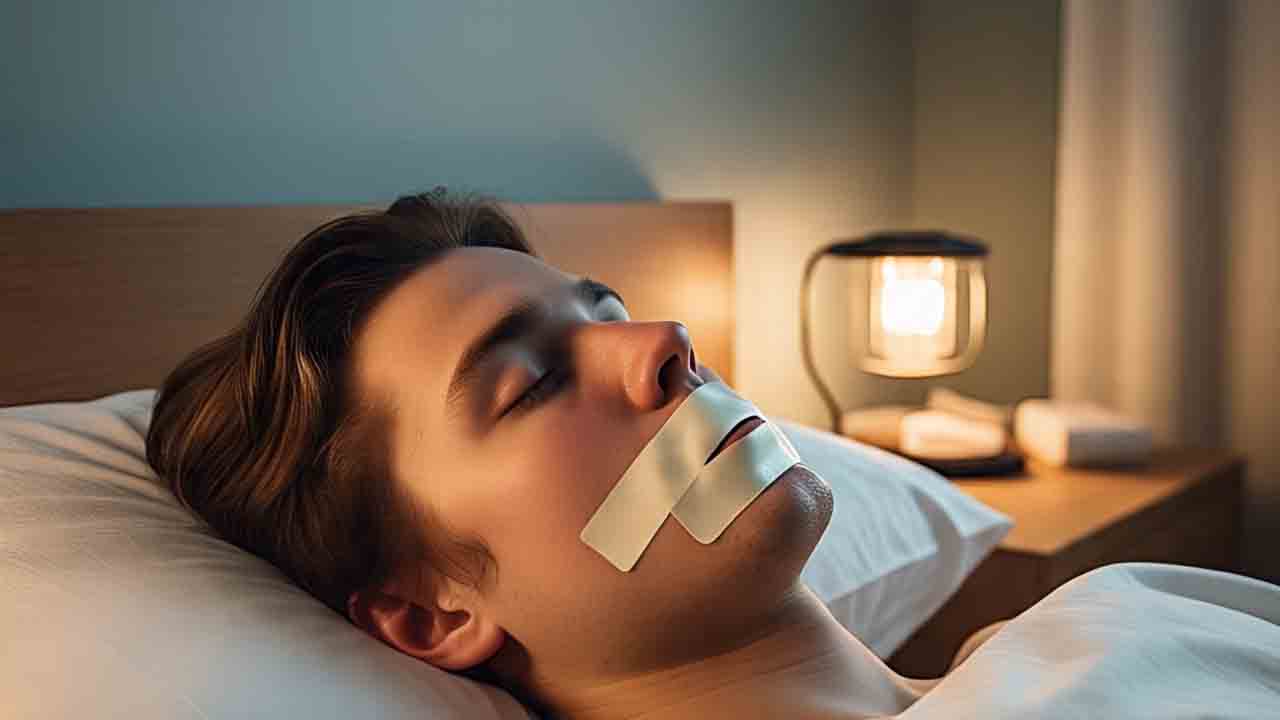
Elmsleep – Mouth taping, the practice of sealing one’s lips with tape during sleep to promote nasal breathing, is gaining traction across social media platforms and wellness communities. Advocates claim that this simple, low-cost hack can improve sleep quality, reduce snoring, and even enhance daytime energy levels. From influencers sharing nightly routines to wellness bloggers praising its benefits, mouth taping has quickly gone from niche biohacking tip to mainstream trend.
The concept behind mouth taping is rooted in encouraging nasal breathing a method often associated with better oxygen intake, lower heart rate, and improved sleep efficiency. Supporters argue that mouth breathing during sleep can lead to dry mouth, snoring, and fragmented sleep, while nasal breathing maintains better airflow regulation and supports deep, restorative sleep.
“Power Your Office with Pedals: The Rise of Human”
Despite its growing popularity, health professionals urge caution. Mouth taping may not be suitable for everyone and can pose significant risks, particularly for those with undiagnosed or untreated sleep disorders like obstructive sleep apnea (OSA). This condition causes repeated interruptions in breathing during sleep and can be exacerbated by any obstruction to the airway including sealed lips.
Dr. Emily Foster, a sleep specialist at the National Sleep Health Institute, warns. “Mouth taping could be dangerous for individuals with sleep apnea. As it may further limit airflow and increase the risk of oxygen deprivation during the night.” She recommends that anyone considering this practice first consult a medical professional, especially if they experience symptoms like excessive daytime fatigue, gasping during sleep, or loud snoring.
While anecdotal evidence around mouth taping continues to spread, scientific studies remain limited. Preliminary research suggests potential benefits of nasal breathing. But there is little direct data on the safety or efficacy of using tape to enforce this behavior during sleep.
Some sleep coaches and wellness experts suggest trying alternative methods to encourage nasal breathing. Such as nasal strips, humidifiers, or breathing exercises. For those curious about mouth taping, starting with short daytime trials under safe conditions may help gauge comfort and compatibility.
Mouth taping might offer a promising solution for some seeking better sleep, but it is far from a one-size-fits-all remedy. Until further research provides clearer answers, this trend should be approached with both curiosity and caution.
“OpenAI Unveils Codex: The Ultimate AI Coding Assistant”